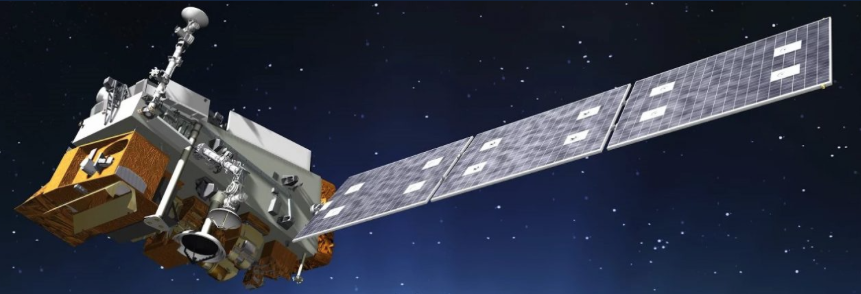
An artist’s depiction of JPSS-1 in orbit above Earth. Image Credit: Ball Aerospace
Certainly a disappointment when it was announced that NOAA's Joint Polar Satellite System (JPSS) spacecraft had a technical issue. The spacecraft was to have been launched in March, however the earliest date will now be July.
This according to John Leslie, the National Oceanic and Atmospheric Administration spokesman, who announced that the JPSS-1 launch, previously scheduled for March, has been delayed until the fourth quarter of fiscal year 2017, or July to September. That date had appeared in recent JPSS program schedules, although NOAA had made no formal statement of a delay.
The delay announcements began in August of 2016 when NOAA confirmed that the JPSS-1 launch, which had been scheduled for January 20, would be delayed to March. That delay was accredited to problems with one of the spacecraft’s instruments as well as the JPSS ground system. Additionally these delays have scientist concerned as there may be a lapse in time that could threaten a possible data gap. Leslie added, “The main factors delaying the JPSS-1 launch are technical issues discovered during environmental testing of the satellite and the Advanced Technology Microwave Sounder (ATMS) instrument." ATMS issues were also one of the reasons for the previous delay. In addition, he cited, “challenges in the completion of the common ground system” that will be used for JPSS and other NOAA polar-orbiting weather satellites.
This creates an additional issue, that being that NOAA needed to seek financial relief for the program. A provision in the continuing resolution passed December 9, that funds the federal government through late April at 2016 levels, gives NOAA the authority to spend at higher levels for the JPSS program.
The ATMS instrument on the Suomi National Polar-orbiting Partnership spacecraft is in danger of failing, with unrelated issues to the ATMS developed for JPSS-1. The rest of the spacecraft are in good health.

